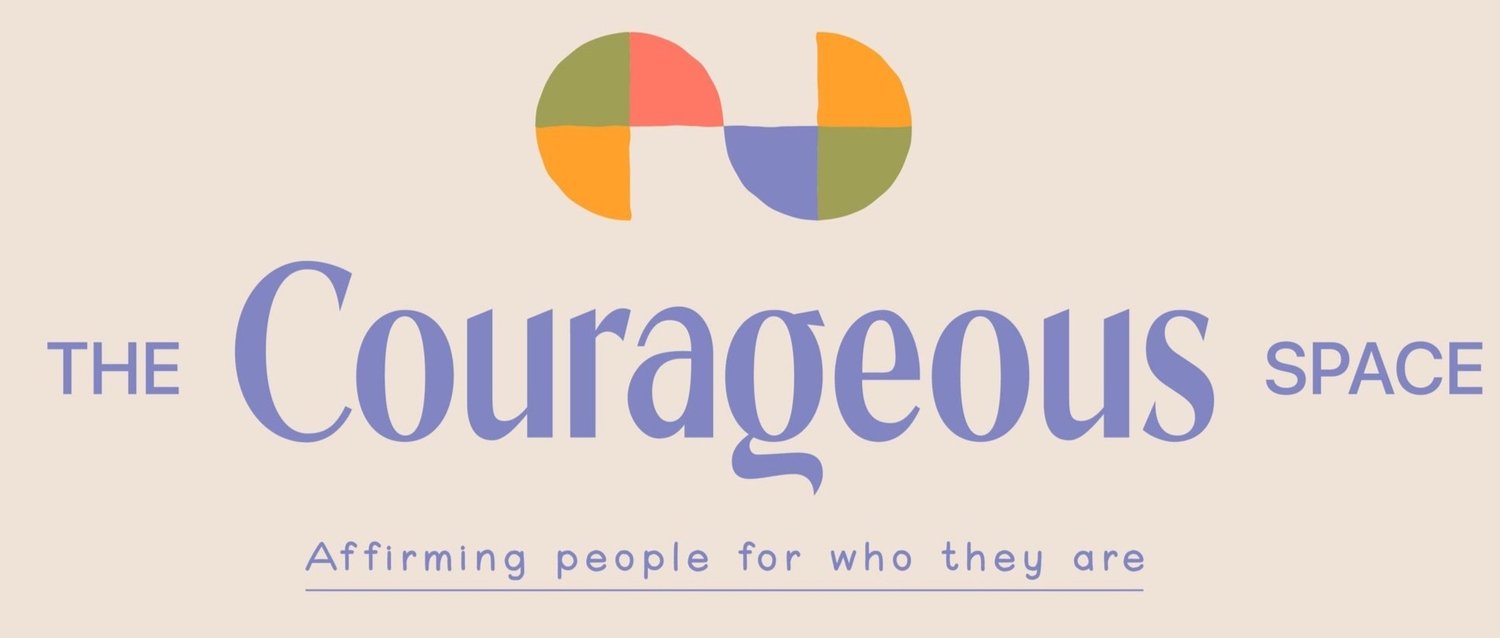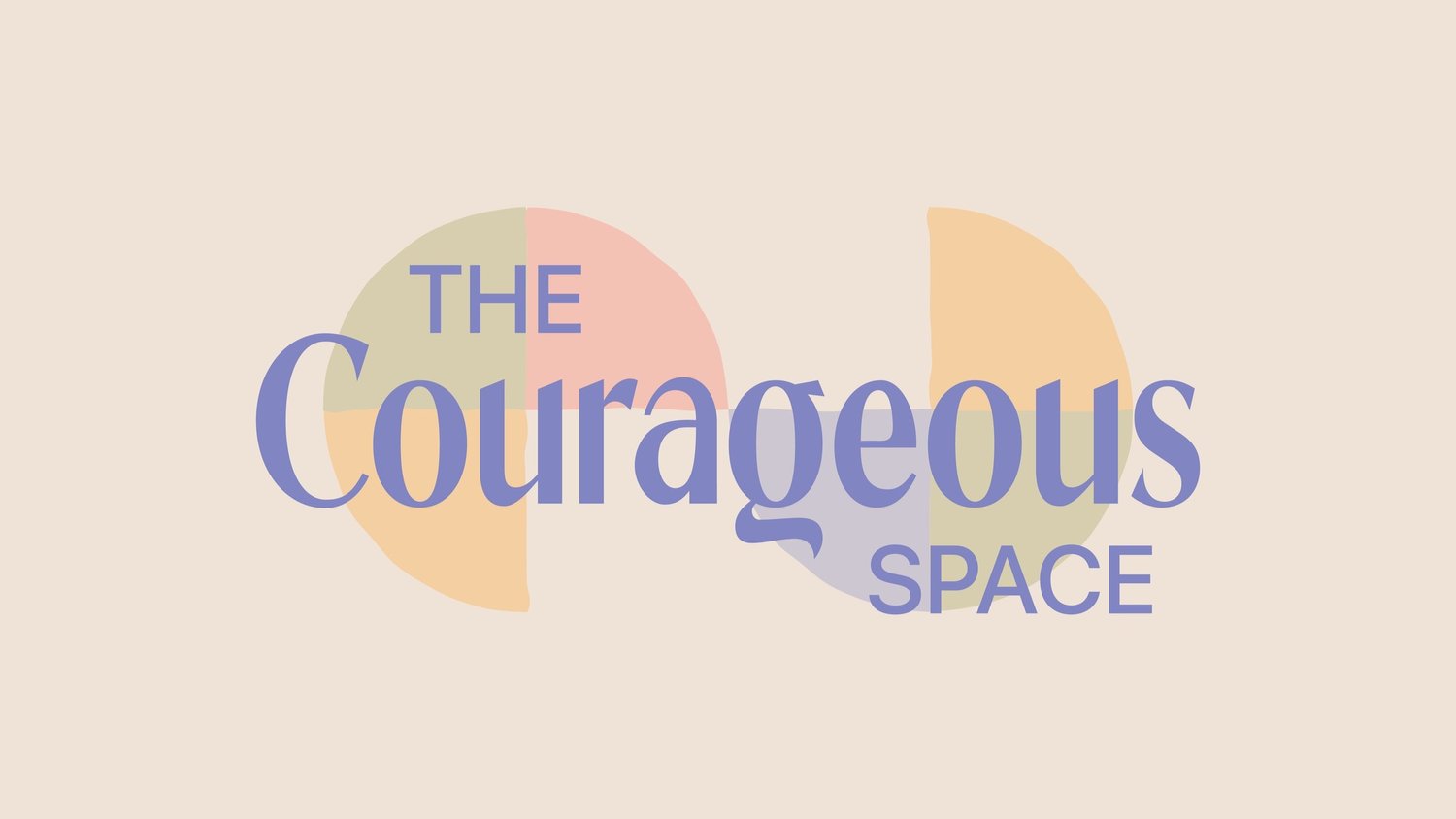No matter where you have come from or where you are going, we will meet you where you are at.
What do you need right now?
Assessment
-
Assessment can help individuals gain a deeper understanding of themselves and their unique needs. Providing insight and guidance on how to support your strengths and challenges. At The Courageous Space, we see you as a whole person and do not focus solely on diagnosis. Our assessment explores symptoms and experiences in affirming:
o ADHD
o Autism
o Language and literacy
o Gender
o Mental Health
Assessments are completed by multidisciplinary therapists with comprehensive reports, provided for diagnosis by Paediatrician or Psychiatrist.
-
Assessment can vary for each individual and your needs. The therapist will understand your background and your experiences leading up to your assesment. They will also use a range of formal and informal assessment tools. Assessment typically takes between 2-4 sessions.
Art Therapy
-
Everyone can use expressive therapies! You do not need any specific artistic competence, only an openness to see what might happen when you try.
Art therapy also is a proven way of soothing our nervous systems and enhancing learning.
-
Art therapy includes the use of all expressive modes (e.g. visual, aural, verbal, movement based and performative) to explore what we know and to create change.
Working multimodally helps us to access knowledge of ourselves which is embodied and not primarily conscious. This enables deeper and longer lasting therapeutic growth.
Family Therapy
-
We support families who:
o Have family members who are from the LGBTIQAP+ and/or neurodivergent communities wanting to learn how to best support and communicate with each other.
o May be learning to understand each other’s unique abilities, strengths and struggles.
o May be feeling stuck.
o Wish to break unhelpful cycles and patterns.
o Are moving through life’s stages, changes and transitions.
o Finding it hard to communicate about gender or a person’s transition.
-
We acknowledge that bringing the whole family to therapy can feel scary. Your therapist will be there to support and guide all types of conversations.
Sometimes family therapy includes sessions with parents only, individuals or the whole family.
These sessions will be for either 60 or 90 mins. You and your therapist will decide together on the length of time needed.
Mental Health
-
The Courageous Space have Accredited Mental Health Social Workers and Psychologists who provide mental health care. Both professions are skilled in a range of mental health treatments and interventions, with robust knowledge of mental health diagnosis.
Your therapist will spend time getting to know you, your story, strengths and the areas where you are experiencing challenges. If you give your therapist permission, they may also speak to other people in your life to get a holistic idea of your situation. These may include, for example, your parents, other therapists, doctors or teachers. This part of the journey process is important and may take up to three or four sessions. It will inform your therapists’ assessment and treatment plan. It also gives you the chance to decide whether your therapist is a good fit for you.
-
Accredited Mental Health Social Workers use focused psychological strategies such as CBT, DBT, mindfulness, relaxation and stress management and skills development (problem solving, communication, relationship skills).
Psychologists use integrated therapeutic approaches based around cognitive behaviour therapy that are trauma responsive and tailored to the needs and circumstances of the client. Some of the approaches that may be included are: somatic therapies, expressive and narrative therapies, acceptance and commitment therapy, psychodynamic approaches and schema therapy.
We see children, adolescents and adults to explore and support your unique needs in a way that is:
o Neurodivergent or neurominority affirming
o LGBTIQA+ affirming
o Trauma responsive
These sessions will be for either 60 or 90 mins. You and your therapist will decide together on the length of time needed.
You can be referred by your GP with a Mental Health Care Plan or a Chronic Disease Management Plan to receive Medicare rebates.
Gender Affirming Care
-
Gender affirming care can be implemented into all of our services. Gender affirming mental health care can include:
o Wanting to explore and understand your gender identity;
o Having support to navigate your transition;
o An assessment and report to help you access the appropriate gender affirming medical care;
o Supporting you to share your identity with those you wish to (such as friends, family or work);
o Understanding the potential impact of stress due to being part of a social minority. -
We can provide gender affirming care through:
o Speech Therapy: Gender affirming voice and communication care
o Mental Health: Helping you explore and understand your gender or sexuality. As well as assisting with communication to your significant others about your gender.
o Relationship Work: Supporting communication within relationships to explore and understand gender identity or sexuality, or supporting relationships through gender transition.
o Family Therapy: We can help families talk about gender and understand concepts and ideas about gender. Aswell as help families understand each other’s perspectives about gender and supporting joining together as a family. This may be particularly important to support each other through gender transition, which we can guide you through.
Relationship Therapy
-
We support all kinds of relationships. We welcome people from the LGBTIQAP+ community, either as individuals, people in relationships (platonic, romantic, monogamous, polyamorous etc) and families.
Some people access relationship therapy to strengthen their relationships, understand each other better and deepen their connections. Other times people may attend to address a specific problem that has arisen (such as communication, conflict or grief), or to gain new perspectives by reflecting on issues that are occurring.
-
If you are seeking relationship work you and the person (persons) you are in a relationship with will attend the first appointment for your therapist to get to know you and talk about what brings you to therapy. Your therapist will likely have individual sessions with you and your partner(s) to understand everyones perspectives.
Sessions will be a combination of talking, getting creative and thinking together. Your therapist will be there to support communication with you and your partner(s).
These sessions will be for either 60 or 90 mins. You and your therapist will decide together on the length of time needed.
Speech Therapy
-
Speech:
We provide speech assessment and therapy for speech delays and speech sound disorders for those ages 4.5 and over.
Speech Therapy can look like:
o Articulation of correct speech sounds in words
o Improving intelligibility of speech.
Language:
Language therapy can include the understanding of language, and how to use it to express yourself. This may include assessment and therapy.
For some people, language differences may look like:
o Language developing slower than expected or slower than peers.
o Difficulty understanding or using language day to day
o Not understanding or following instructions, tasks, or daily activities
o Difficulty telling a story and sharing personal experiences.
o Attentional differences or behavioural differences
o Difficulty remembering what they’ve been told.
o Reading and writing difficulties
o Learning difficulties or challenges in the classroom, workplace, or other environment
o Understanding and expressing thoughts, feelings, opinions.
o Self-Advocacy e.g., Asking for help and expressing needs – this may be in the classroom, workplace, or other environments
o Connecting with others confidently and comfortable in your own unique way
-
We can provide assessment and therapy for reading and writing. Literacy difficulties can include:
o Remembering letters and their sounds
o Learning to read
o Reading fluently
o Sounding out words
o Spelling
-
Understanding your neurodiverse identity, self-advocacy and support for communicating your differences and needs.
-
We provide gender affirming voice and communication care.
We provide other services too.
-
Our experienced therapists can provide supervision and mentoring to fellow therapists and students.
-
We are passionate about raising awareness, providing education and upskilling workplaces, university students and other groups on how to best support neurodivergent and LGBTIQA+ communities.






